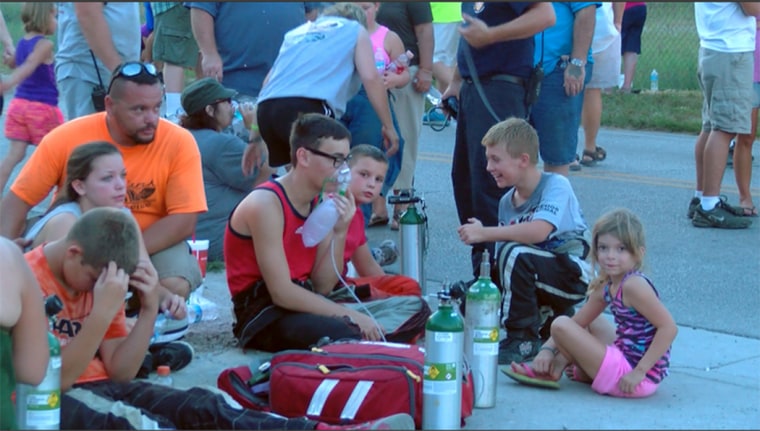A chemical leak near an Indiana mini-speedway sent at least 15 people to the hospital, officials said.
Sulfur dioxide spilled at a chemical plant in Terre Haute on Saturday night, causing fumes to blow over a racetrack where families were watching a children's event, NBC station WTWO reported.
"There were kids laying down, there were adults laying down," Korie Ellis, who was there to see her youngest son race, told WTWO. "There was some people throwing up, but just a lot of coughing, a lot of not feeling well. A lot of throats that were hurting at that point."
Officials told WTWO and The Associated Press that the leak came from a plant run by Hydrite Chemical Co.
The company's website says it is "one of the largest and most respected providers of chemicals and related services in the United States" and has a dozen plants across Indiana, Wisconsin, Iowa, Illinois and California. The firm was not immediately available for comment when contacted by NBC News.
The fumes reached the nearby Hulman Mini-Speedway, where a crowd of around 200 people were evacuated from the venue, The Tribune-Star newspaper reported.
"All the sudden people started running, saying, 'Run, run towards the gate,'" Ellis told WTWO.
According to the U.S. Environmental Protection Agency guidelines, sulfur dioxide can cause "an array of adverse respiratory effects including bronchoconstriction and increased asthma symptoms."

